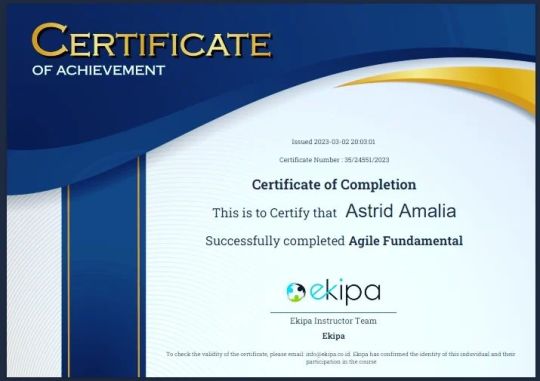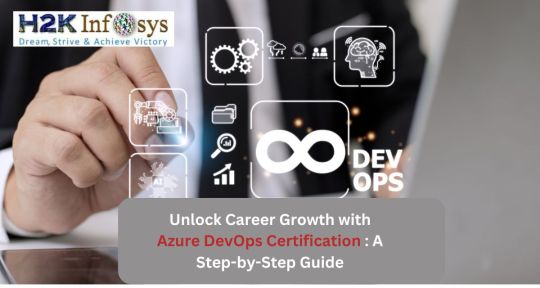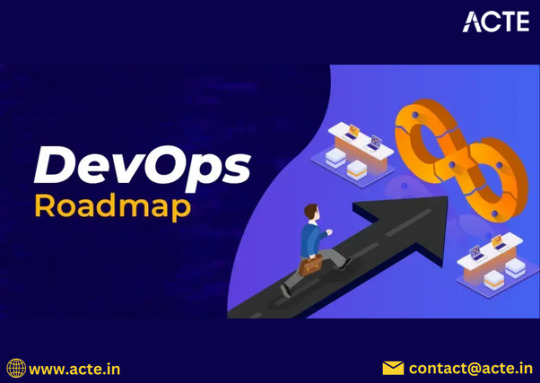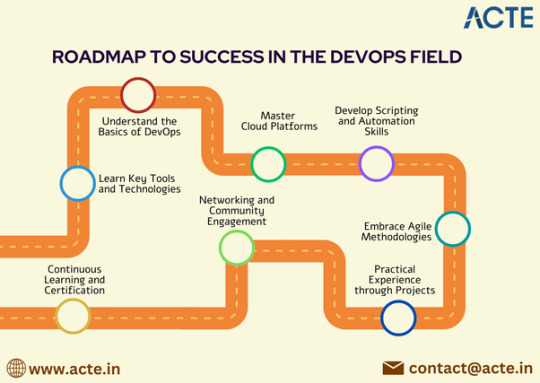#Agile Scrum Foundation Certification
Explore tagged Tumblr posts
Text
#Agile Scrum Foundation Certification#corporate training#certification and training#agile#scrum#course
0 notes
Text
With a focus on Agile principles, the Agile Scrum certification equips you with the necessary skills to effectively collaborate, adapt, and deliver high-quality projects using Agile Scrum frameworks.GSDC Certified Agile Scrum Foundation certification is designed to validate your knowledge and understanding of Agile Scrum methodologies.Agile Scrum certification demonstrates your proficiency in Agile and Scrum practices, making you a valuable asset in today's rapidly evolving business environment. The GSDC Certified Agile Scrum Foundation provides a solid foundation for individuals seeking to enhance their career prospects and contribute to the success of Agile-driven organizations.By obtaining this Agile foundation certification, you gain recognition for your expertise in Agile Scrum and become equipped to lead teams, enhance productivity, and deliver customer-centric solutions. Stay ahead in the competitive job market with the GSDC Certified Agile Scrum Foundation, the agile certification that empowers you to thrive in the ever-changing technology landscape.
#casf#certified agile scrum foundation#asf certification#agile scrum best practices#agile scrum foundation#scrum foundation exam#agile scrum foundation certification#agile scrum certification#agile and scrum foundation certification#agile#agile scrum#scrum
0 notes
Photo

Celebrating my new certification! I am happy to receive the Certificate of Completion from the Agile Fundamental Course by @ekipa.co (Ekipa Agile Consultancy Indonesia / PT Ekipa Agile Consultancy). I would like to thank @hugo.messer (Hugo Messer) from Ekipa Agile Consultancy Indonesia for teaching me about the Agile Fundamental. Agile Fundamental by Ekipa is a Foundational Course designed to teach the Fundamental Concepts of Agile Methodology. The course covers topics such as the Fundamentals of Agile, Scrum Framework, Product Vision, User Stories, Sprint Planning, Key Competencies, and more. The topics covered in the course have helped me gain the necessary knowledge to understand Agile Methods and Principles. I hope someday I can become a Certified Agile Practitioner and practice Agile in my daily activities. #Certificate #Agile #Fundamental #Course #Ekipa #Indonesia #knowledge #Foundational #Concept #Methodology #Scrum #Framework #Product #Vision #User #Sprint #Planning #Method #Principle #Certified #Practitioner #practice #training #technology #business #management #corporate #company https://www.instagram.com/p/CpXZnloyIY7/?igshid=NGJjMDIxMWI=
#certificate#agile#fundamental#course#ekipa#indonesia#knowledge#foundational#concept#methodology#scrum#framework#product#vision#user#sprint#planning#method#principle#certified#practitioner#practice#training#technology#business#management#corporate#company
0 notes
Text
Unlock Career Growth with Azure DevOps Certification: A Step-by-Step Guide

Gain expertise in Azure DevOps with our comprehensive certification guide. Learn Azure DevOps online with hands-on training for career growth.
Introduction: Why Azure DevOps Certification Matters
The demand for DevOps professionals is skyrocketing as companies move towards cloud-based solutions. Microsoft’s Azure DevOps Certification offers a structured approach to mastering DevOps methodologies, making it a game-changer for IT professionals. Whether you aim to learn Azure DevOps from scratch or enhance your skills with DevOps Training Online, this guide will walk you through the Azure DevOps course, its benefits, and the career opportunities it unlocks.
What is Azure DevOps?
Azure DevOps is a set of cloud-based tools and services that help organizations streamline their software development lifecycle (SDLC). It provides automation, CI/CD (Continuous Integration/Continuous Deployment), version control, and project management capabilities, making it indispensable for modern software development.
Key Components of Azure DevOps:
Azure Repos: Source code management using Git.
Azure Pipelines: CI/CD automation for faster deployment.
Azure Boards: Agile project management.
Azure Test Plans: Automated and manual testing solutions.
Azure Artifacts: Package management for better dependency tracking.
Benefits of Azure DevOps Certification
1. High Demand in the Industry
DevOps professionals are among the highest-paid IT experts. According to Glassdoor, the average salary of an Azure DevOps Engineer in the U.S. is over $120,000 per year.
2. Hands-On Cloud Expertise
With DevOps and AWS training, professionals gain multi-cloud expertise, making them valuable assets to organizations shifting to hybrid environments.
3. Career Growth and Job Security
Azure DevOps engineers, cloud architects, and automation testers are in high demand. Companies like Microsoft, Google, and Amazon prioritize certified DevOps professionals.
4. Increased Productivity & Efficiency
With Azure DevOps Git training, teams can manage code versions seamlessly, improving collaboration and reducing software release cycles.
Step-by-Step Guide to Azure DevOps Certification
Step 1: Choose the Right Azure DevOps Course
H2K Infosys provides Azure DevOps training online that includes live classes, hands-on labs, and industry projects to help you become proficient.
Step 2: Understand Version Control with Azure Repos
Git and TFVC (Team Foundation Version Control) are integral parts of Azure DevOps. Learning Azure DevOps Git training will help you manage source code effectively.
Step 3: Master CI/CD with Azure Pipelines
Learn how to automate software deployment with Azure Pipelines to ensure quick and reliable software releases.
Step 4: Implement Agile Practices with Azure Boards
Understand how Agile and Scrum methodologies fit into the Azure ecosystem using Azure Boards for better project management.
Step 5: Enhance Security and Compliance with Azure Test Plans
Testing is a critical aspect of DevOps. Learn to implement automated test suites with Azure Test Plans.
Step 6: Get Hands-On Experience with Real-World Projects
Enroll in an Azure DevOps training online course that includes real-world case studies and hands-on labs.
Step 7: Prepare for the Microsoft Azure DevOps Engineer Expert Exam (AZ-400)
The AZ-400 certification is the gold standard for DevOps professionals. Our Azure DevOps course at H2K Infosys provides structured learning and mock tests to help you ace the exam.
Real-World Applications of Azure DevOps
1. Continuous Integration & Deployment
Azure Pipelines enable businesses to automate software deployment, reducing manual errors and speeding up product releases.
2. Cloud-Based Collaboration
With Azure Repos and Azure Boards, remote teams can collaborate efficiently, ensuring smooth workflows.
3. Security and Compliance
With built-in security tools, DevOps professionals can ensure secure deployments while complying with industry standards.
Why Choose H2K Infosys for Azure DevOps Training?
H2K Infosys provides the best Azure DevOps training online with:
Expert-Led Training: Learn from certified DevOps professionals.
Hands-On Learning: Real-world projects and case studies.
Job Assistance: Resume building, interview prep, and job placement support.
Flexible Learning Options: Self-paced and instructor-led training.
Conclusion: Get Certified and Accelerate Your Career
Take the next step in your IT career with Azure DevOps certification from H2K Infosys. Enroll today and master DevOps with hands-on training!
#devops engineer#devops engineer course#devops engineer certification#azure devops git training#devops training#azure devops training#devops and aws training#devops with aws training#devops training online#devops certification training#devops online training#devops training and certification#azure devops certification#azure devops course#best devops training online free#learn azure devops#devops certification microsoft#devops microsoft certification#azure devops training online#aws devops training online
0 notes
Text
SAFe Scrum Master Training: Elevate Your Agile Career
Introduction :-
In the rapidly evolving world of Agile methodologies, the role of a Scrum Master has become increasingly vital, especially within large organizations adopting the Scaled Agile Framework (SAFe). The SAFe Scrum Master (SSM) certification training is designed to equip professionals with the skills and knowledge necessary to thrive in this role. This blog explores the key components of SAFe Scrum Master training and how it can significantly enhance your career in Agile environments.
Understanding the SAFe Scrum Master Role
The SAFe Scrum Master acts as a servant leader and facilitator for Agile teams working within the SAFe framework. Unlike traditional Scrum Masters, those operating in a SAFe environment must navigate complexities associated with multiple teams and their interdependencies. The SSM training prepares individuals to effectively manage these dynamics, ensuring that teams can deliver value consistently.

Key Components of SAFe Scrum Master Training
Foundational Knowledge of SAFe
The training begins with an introduction to the Scaled Agile Framework, covering its principles, values, and practices. Participants gain insights into how SAFe integrates Lean thinking with Agile methodologies, providing a solid foundation for understanding their role within this framework.
Facilitating Team Events
A significant focus of the SSM training is on facilitating key team events such as sprint planning, daily stand-ups, sprint reviews, and retrospectives. Participants learn techniques to ensure these meetings are productive and engaging, fostering collaboration and communication among team members. Effective facilitation is crucial for maintaining momentum and driving continuous improvement.
Collaboration Across Teams
In a SAFe environment, collaboration among multiple Agile Release Trains (ARTs) is essential. The training emphasizes strategies for promoting cross-team collaboration, helping Scrum Masters coordinate efforts across various teams to achieve common goals. This collaborative mindset enhances overall productivity and ensures alignment with organizational objectives.
Conflict Resolution Skills
Conflict is inevitable in any team setting, but effective resolution is key to maintaining a healthy team dynamic. The SSM training equips participants with conflict resolution techniques that enable them to address issues constructively and foster a positive working environment. By developing these skills, Scrum Masters can help their teams navigate challenges more effectively.
Program Increment (PI) Planning
One of the critical aspects of SAFe is Program Increment (PI) planning, where teams align on objectives for a set period (typically 8-12 weeks). The SSM training prepares participants to facilitate PI planning sessions effectively, ensuring that all stakeholders are engaged and that teams have a clear understanding of their goals. This preparation is vital for successful delivery in a SAFe environment.
Continuous Improvement Mindset
The SAFe framework emphasizes continuous improvement through regular feedback loops and retrospectives. Participants learn how to instill this mindset within their teams by encouraging reflection on processes and outcomes. By fostering a culture of continuous improvement, Scrum Masters can drive innovation and enhance team performance.
Benefits of SAFe Scrum Master Certification
Career Advancement
Obtaining the SAFe Scrum Master certification opens doors to new career opportunities within Agile environments. Organizations increasingly seek certified professionals who can lead Agile transformations effectively, making this certification a valuable asset for career growth.
Increased Earning Potential When compared to their peers who are not qualified, professionals who hold SAFe certifications frequently fetch greater compensation. The specialized knowledge gained through SSM training enhances your marketability and positions you as a valuable asset to potential employers.
Networking Opportunities
Upon earning your certification, you join a global community of Agile practitioners and experts. This network provides valuable opportunities for collaboration, knowledge sharing, and professional development.
Conclusion
In summary, SAFe Scrum Master training equips professionals with essential skills needed to excel as Scrum Masters in Agile environments. From understanding the intricacies of the SAFe framework to facilitating team events, promoting collaboration, resolving conflicts, and driving continuous improvement, this training prepares individuals for success in their roles.
As organizations continue to embrace Agile methodologies in 2025 and beyond, investing in SAFe Scrum Master certification will be crucial for developing capable leaders who can guide their teams toward excellence in collaboration and performance while delivering exceptional value to customers. Whether you are new to Agile or looking to deepen your expertise, this certification offers invaluable insights into navigating the complexities of leading high-performing teams in today’s dynamic business landscape.
0 notes
Text
🚀 Start 2025 by advancing your career with Advised Skills!
Explore our upcoming certified training courses designed to boost your skills and help you achieve your professional goals. 🌟 Join our live, instructor-led sessions and get certified by global leaders!

📅 Upcoming Courses: ✔️ 25 January: Leading SAFe® 🔗 https://www.advisedskills.com/agile-and-scrum/leading-safe ✔️ 27 January: ArchiMate® 🔗 https://www.advisedskills.com/enterprise-architecture/archimate-3-foundation-and-practitioner-level-1-and-level-2 ✔️ 27 January: CAPM® 🔗 https://www.advisedskills.com/project-management/certified-associate-in-project-management-capm ✔️ 3 February: TOGAF® EA 🔗 https://www.advisedskills.com/enterprise-architecture/togaf-ea-foundation-and-practitioner-level-1-and-2 ✔️ 3 February: Leading SAFe® 🔗 https://www.advisedskills.com/agile-and-scrum/leading-safe ✔️ 3 February: PMI-PMP® 🔗 https://www.advisedskills.com/project-management/pmi-authorized-pmp-exam-preparation ✔️ 3 February: Change Management Foundation 🔗 https://www.advisedskills.com/business-skills/change-management-foundation ✔️ 6 February: Change Management Practitioner 🔗 https://www.advisedskills.com/business-skills/change-management-practitioner ✔️ 13 February: SAFe® Lean Portfolio Management 🔗 https://www.advisedskills.com/agile-and-scrum/lean-portfolio-management
💡 Whether you're in Enterprise Architecture, Agile Practices, Project Management, or organizational change, we’ve got a course for you!
📢 Seats are limited-register now and start your journey toward certification! 👉 Explore all courses: https://www.advisedskills.com/
#CareerDevelopment #ProfessionalTraining #Certifications #Agile #ProjectManagement #EnterpriseArchitecture #ChangeManagement
#career development#professional training#project management#certification#agile#enterprise architecture#change management
1 note
·
View note
Text
10 Project Management Certifications to Lead Successful Projects in 2025

1. Project Management Professional (PMP)
The PMP certification, offered by the Project Management Institute (PMI), is one of the most recognized and respected credentials in the industry. It validates your ability to manage projects, lead teams, and deliver results. With a PMP certification, you demonstrate your expertise in project management methodologies and best practices.
2. Certified ScrumMaster (CSM)
For those focusing on Agile methodologies, the Certified ScrumMaster (CSM) certification is a must-have. Offered by the Scrum Alliance, this certification equips you with the skills to facilitate Agile teams and ensure successful project delivery. CSMs are in high demand, especially in software development and IT sectors.
3. PRINCE2 Practitioner
PRINCE2 (Projects IN Controlled Environments) is a widely adopted project management methodology. The PRINCE2 Practitioner certification, offered by AXELOS, is ideal for professionals looking to enhance their project management skills. It provides a structured approach to managing projects and is highly valued in both public and private sectors.
4. Certified Project Manager (CPM)

Explore AICERT’s wide range of AI certifications, and don’t forget to use the code NEWUSERS25 for a 25% discount on all courses. Click here to start your journey into AI Project Manager today!
“Have questions or are ready to take the next step in your AI certification journey? Reach out to us at AI CERTs — our team is here to guide you every step of the way!”
5. Agile Certified Practitioner (PMI-ACP)
The PMI Agile Certified Practitioner (PMI-ACP) certification is another credential offered by PMI. It focuses on Agile principles and practices, making it ideal for professionals working in Agile environments. The PMI-ACP certification demonstrates your ability to apply Agile methodologies to projects, ensuring flexibility and efficiency.
6. Certified Associate in Project Management (CAPM)
The Certified Associate in Project Management (CAPM) certification, also offered by PMI, is perfect for those starting their project management career. It provides a solid foundation in project management principles and practices. The CAPM certification is a stepping stone to more advanced credentials like the PMP.
7. Lean Six Sigma Green Belt
Lean Six Sigma is a methodology that combines Lean and Six Sigma principles to improve processes and eliminate waste. The Lean Six Sigma Green Belt certification is ideal for project managers looking to enhance their process improvement skills. It equips you with the tools to lead projects that drive efficiency and quality.
8. Certified in Risk and Information Systems Control (CRISC)
The Certified in Risk and Information Systems Control (CRISC) certification, offered by ISACA, is designed for professionals managing IT and business risks. It validates your ability to identify, assess, and manage risks, ensuring successful project outcomes. CRISC is highly valued in industries where risk management is critical.
9. Project Management in IT Security (PMITS)
The Project Management in IT Security (PMITS) certification, offered by the EC-Council, is tailored for professionals managing IT security projects. It covers essential project management concepts and practices specific to IT security. PMITS certification is ideal for those looking to lead projects in the cybersecurity domain.
10. Certified Construction Manager (CCM)

Conclusion
Earning a project management certification in 2025 can significantly boost your career and ensure you lead successful projects. Whether you are just starting or looking to advance your career, these certifications offer valuable skills and recognition in the industry. Choose the certification that aligns with your career goals and take the next step towards becoming a successful project manager.
0 notes
Text

🚀 Boost Your Career with Agile Scrum Foundation Certification Training! 🚀
Are you a software developer, project manager, or IT professional looking to enhance your skills in Agile project management and Scrum frameworks? Upgrade My Skill's Agile Scrum Foundation Certification Training is your perfect gateway to understanding Agile principles and Scrum practices.
📚 What You'll Learn:
Key concepts of Agile methodologies. Scrum roles, events, and artifacts. Agile planning, estimating, and continuous improvement techniques. Practical applications of Agile tools and best practices. This entry-level course is designed to prepare you for the Agile Scrum Foundation (ASF) Certification Exam. Delivered in both classroom and live online modes, it's accessible to professionals worldwide.
✅ Why Get Certified?
Increase Career Opportunities: Stand out with a globally recognized credential. Boost Earning Potential: Agile expertise is in high demand across industries. Lead Successful Projects: Master the tools and techniques to drive iterative progress and enhance team performance. Get ready to elevate your career and become an Agile expert with Upgrade My Skill!
👉 Enroll Now: https://www.upgrademyskill.com/agile-scrum-foundation-certification-training
#AgileScrum#ScrumCertification#ProjectManagement#UpgradeYourSkills#AgileTraining#careerdevelopment#AgileMethodology#ScrumMaster#AgileProjectManagement#AgileCertified#ScrumTraining#ProfessionalDevelopment#AgileCertification#ProjectManagementTraining#AgileScrumFoundation#ScrumPractices#ITProfessionals#SoftwareDevelopment#AgileCoaching#ScrumMasterCertification#AgileTeams#ContinuousImprovement#CareerGrowth#ITTraining#AgileSkills#AgileProcess#ScrumRoles#UpgradeMySkill#CertificationTraining#AgileExperts
0 notes
Text
Pathway to Achieving Success in DevOps
In the ever-evolving tech industry, DevOps has emerged as a crucial methodology for enhancing collaboration between development and operations teams. If you’re looking to carve out a successful career in this dynamic field, here’s a structured pathway to guide you through your journey.
For those keen to excel in Devops, enrolling in Devops Course in Bangalore can be highly advantageous. Such a program provides a unique opportunity to acquire comprehensive knowledge and practical skills crucial for mastering Devops.

1. Grasp the Core Concepts of DevOps
To embark on your DevOps journey, it's essential to understand its foundational principles:
Collaboration: Foster teamwork between developers and operations.
Automation: Streamline processes to minimize manual intervention.
Continuous Integration and Continuous Deployment (CI/CD): Regularly integrate code changes and automate deployment for efficiency.
Resources to Explore:
Books: The DevOps Handbook by Gene Kim
Courses: Platforms like Coursera and Udemy offer introductory courses on DevOps.
2. Familiarize Yourself with Essential Tools
DevOps relies heavily on various tools to facilitate automation and streamline workflows. Key tools include:
Version Control: Git, GitHub, GitLab
CI/CD Platforms: Jenkins, CircleCI, Travis CI
Configuration Management: Ansible, Puppet, Chef
Containerization: Docker, Kubernetes
Monitoring Solutions: Prometheus, Grafana, ELK Stack
Resources for Tools:
Official documentation and tutorials for each tool
Hands-on practice using platforms like GitHub
3. Acquire Cloud Computing Skills
Cloud platforms are integral to DevOps practices. Gain proficiency in major cloud providers, such as:
Amazon Web Services (AWS)
Microsoft Azure
Google Cloud Platform (GCP)
Understanding how to deploy and manage applications in the cloud is vital for any DevOps professional.
Learning Resources:
Cloud provider documentation
Online courses focusing on cloud technologies
4. Develop Scripting and Automation Skills
Scripting is at the heart of DevOps. Learn popular scripting languages like:
Python
Bash/Shell scripting
Ruby
These languages will enable you to automate repetitive tasks effectively.
Where to Learn:
Codecademy and freeCodeCamp for interactive language tutorials
Project-based learning to implement your skills
5. Embrace Agile Methodologies
Familiarize yourself with Agile principles, as they complement DevOps practices. Key methodologies include:
Scrum
Kanban
Lean
Understanding these approaches will enhance your ability to work collaboratively in a fast-paced environment.
Recommended Resources:
Agile training courses
Books like Agile Estimating and Planning by Mike Cohn
6. Gain Practical Experience
Theory is essential, but practical experience is where you truly learn. Engage in:
Open Source Projects: Contributing to platforms like GitHub can provide invaluable hands-on experience.
Personal Projects: Build and deploy your applications to solidify your skills.
Enrolling in Devops Online Course can enable individuals to unlock DevOps full potential and develop a deeper understanding of its complexities.

Finding Projects:
Explore GitHub repositories of open-source projects
Participate in hackathons or coding competitions
7. Network and Engage with the Community
Building a network is crucial for career growth. Engage with the DevOps community through:
Meetups and Conferences: Attend events to connect with industry professionals.
Online Forums: Join platforms like Reddit, Stack Overflow, or specialized DevOps forums.
Networking Opportunities:
Meetup.com for local events
Online communities on Discord or Slack
8. Commit to Continuous Learning
The tech landscape is always changing, making continuous learning essential. Consider pursuing certifications in relevant DevOps practices and tools, such as:
AWS Certified DevOps Engineer
Docker Certified Associate
Certified Kubernetes Administrator (CKA)
Learning Platforms:
Official certification training programs
Online courses focusing on certification preparation
Conclusion
The pathway to success in DevOps is a blend of technical skills, collaboration, and a commitment to lifelong learning. By following this structured approach, you can position yourself for a fulfilling career in this exciting field. Embrace the journey, stay curious, and actively seek opportunities to grow and connect with others in the DevOps community!
0 notes
Text
With a focus on Agile principles, the Agile Scrum certification equips you with the necessary skills to effectively collaborate, adapt, and deliver high-quality projects using Agile Scrum frameworks. GSDC Certified Agile Scrum Foundation certification is designed to validate your knowledge and understanding of Agile Scrum methodologies.Agile Scrum certification demonstrates your proficiency in Agile and Scrum practices, making you a valuable asset in today's rapidly evolving business environment.
The GSDC Certified Agile Scrum Foundation provides a solid foundation for individuals seeking to enhance their career prospects and contribute to the success of Agile-driven organizations.By obtaining this Agile foundation certification, you gain recognition for your expertise in Agile Scrum and become equipped to lead teams, enhance productivity, and deliver customer-centric solutions.
#casf#certified agile scrum foundation#asf certification#agile scrum best practices#agile scrum foundation#scrum foundation exam#agile scrum foundation certification#agile scrum certification#agile and scrum foundation certification
0 notes
Text
5 Agile courses that could make your Career
The pandemic has forced global organizations to change the way they think and plan. The global scenario saw a major shift and the companies had to re-strategize to survive and stay ahead of the competition. Leading companies are now looking for professionals who have the knowledge and the skill to lead an organization with the Agile approach. Agile project management courses or pmi acp certification can be a sure-shot way to take a lead.
Upskilling is important, especially in highly competitive industries like software development. Therefore, to stay ahead in the game an individual must constantly improve his skill and knowledge to stay ahead in the game.
Many Agile certifications are available and it can be quite a task to choose just one. Today, we will discuss 5 Agile courses that could help you climb the career ladder quickly. These courses are high in demand and will also improve your earning potential.
Let us now have a look at the top 5 Agile Project management certifications -
PMI Agile Certified Practitioner (PMI-ACP) - It is one of the best courses to obtain an Agile certification. It is beneficial for professionals who want to improve their knowledge about the practical application of concepts and techniques of Agile. It is considered to be a golden standard for assessing competency in Agile concepts. The marketability increases and the since it is a very high-in-demand course there is an increase in professional growth as well. This course covers multiple Agile approaches like Scrum, Lean, Kanban, test-driven development, and Extreme Programming. PMI-ACP certification helps in improving versatility. The PMI-ACP certification is ideal for professionals like Agile coaches, project managers, product owners, and project planners. To maintain this certification, a candidate must, every three years must obtain 30 PDUs or professional development units in Agile topics. A candidate must possess 8 months of Agile experience in the last three years to apply for this course. Other requirements include 21 training hours in Agile practices, a secondary degree, and a year of general project experience in the last five years. And also best practices in this coure you can enroll to EDUHUBSPOT , PMI-ACP bootcamp.
Agile Project Management or Agile PM - This course combines the practices of Agile methodology as well as the principles of project management. The Agile PM certification is globally recognized and proves a candidate's ability to adhere to Agile principles in project management in an Agile-focused environment. This course covers various aspects like how to successfully lay the foundation of an Agile project and also prepares you for the Foundation exam. This course is great for professionals who want to become Agile Project managers and also for those who are practicing project managers. An individual who has passed this course will be able to differentiate between different management styles that are needed for a project within an organisation. He will also be able to adapt better to the constantly changing business environment. He will be able to communicate better and also be flexible to accommodate projects to the timescale and budget. Although, there are no basic requirements for these exams one can appear for the Practitioner exam only after clearing the Foundation exam.
Certified Scrum Master (CSM) by Scrum Alliance - CSM is a Scrum certification that is recognized worldwide. This can help you learn the Scrum framework thoroughly and how to apply its principles in the real world. In an organisation, a Scrum Master is a member who creates a productive environment and helps others understand the Scrum principles effectively. The popularity of this course can be gauged from the fact that almost 1 million plus CSM certifications have been issued by the Scrum Alliance. This course is ideal for program managers, data scientists, HR representatives project managers, IT managers, quality assurance staff, and Scrum team members. In this course, one can learn about the Scrum framework and other aspects like team accountabilities and artifacts. After this course, a Scrum master will also be able to assess any roadblocks that are hindering the progress of the project.
Certified Scrum Product Owner or CSPO by Scrum Alliance - It is a globally recognised Scrum certification in the field of product development and ownership. In the world of product development product owner is a highly emerging job. It is the job of a product owner to decide what valuable product will the team be creating next. This course will not only teach you new ways to learn about your customers to bring value to them but also teach you how to manage several exceptions of different stakeholders at once. This certification can give you a deeper understanding of the business aspect of the project. A CSPO makes the vital decision about what product will be created and ensures that a valuable product reaches the customer. A Certified Scrum Product Owner becomes a part of the global community of Agile practitioners. This means that most companies are looking for certified product owners and a CSPO certification will help with that.
Professional Scrum Master or PSM from Scrum.Org - This is also quite a popular course in Scrum in the field of Agile. It equips the individual with thorough knowledge of the Scrum framework and also its application in solving real-world complexities. The certificate is valued because it requires the candidate to demonstrate practical knowledge of the subject as well. There are three different levels of Professional Scrum Master -
Professional Scrum Master I - People who take this certification have a basic mastery of Scrum. PSM I holders can demonstrate that they have an understanding of Scrum and they can apply Scrum in Scrum teams.
Professional Scrum Master II - PSM II holds an advanced level of mastery in Scrum concepts. They have a deeper understanding of the underlying Scrum principles.
Professional Scrum Master III - This is the most advanced level of Scrum mastery. Individuals who have this level of PSM can use their knowledge extensively in various complex organisational situations.
Benefits of pursuing Agile Certificate courses -
Agile has become the backbone of operations in numerous global organisations. Having an Agile certification will put your multiple steps ahead of your competitors. There are some very clear benefits of pursuing courses in Agile Project management. As a certified Agile project manager, one can deliver consistent value to the stakeholders throughout the project, respond to changes with flexibility, and also be able to communicate with the team and the stakeholders with ease. A certified project manager will be able to manage the daily-stand ups better and since the roles are very clearly defined there is better control over resources like time, cost, and money.
#pmi acp certification#Agile project management courses#PMI-ACP bootcamp#bestAgile project management courses
0 notes
Text
Mastering Agile Practices with Edge Agility: Your Guide to Professional Excellence

Introduction: Empower Your Agile Journey
In today’s fast-paced and competitive business environment, organizations need to adapt swiftly to changing market demands. Agile methodologies have become the cornerstone of success for teams aiming to deliver high-quality products while maintaining flexibility. This is where Edge Agility comes into play, offering top-notch training programs for professionals looking to excel in Agile frameworks.
From achieving certification as a Professional Scrum Master to honing Professional Product Discovery & Validation Skills, Edge Agility equips individuals and teams with the tools they need to thrive. Whether you are a seasoned Agile practitioner or a beginner, understanding the critical roles of a Professional Scrum Product Owner and a Scrum Master is vital for maximizing productivity and ensuring customer satisfaction. Let’s dive deep into these essential aspects and see how Edge Agility empowers professionals to excel in their Agile journey.
Why Edge Agility is a Game-Changer in Agile Training
Edge Agility stands out as a premier provider of Agile training, offering comprehensive courses tailored to meet the evolving needs of businesses. Their programs focus not just on theoretical knowledge but also on practical applications, making them ideal for professionals seeking to master Agile methodologies.
Key Features of Edge Agility:
Expert Trainers: Courses are conducted by certified professionals with years of industry experience.
Comprehensive Curriculum: Training covers foundational and advanced Agile principles.
Flexibility: Options for online and in-person classes to suit different learning preferences.
Real-World Scenarios: Practical exercises to prepare participants for real-world challenges.
By choosing Edge Agility, professionals can enhance their skills in Professional Scrum Master practices and gain expertise in Professional Scrum Product Owner roles.
The Role of a Professional Scrum Master: Driving Team Success
The Professional Scrum Master (PSM) is a pivotal role in any Agile team. They act as the facilitator, ensuring the team adheres to Scrum principles and fosters an environment of collaboration and efficiency.
Responsibilities of a Professional Scrum Master:
Facilitating Scrum Events: Including daily stand-ups, sprint planning, and retrospectives.
Removing Obstacles: Addressing impediments that hinder the team’s progress.
Promoting Agile Practices: Encouraging continuous improvement and adherence to Scrum values.
Coaching Teams: Helping teams self-organize and become high-performing units.
Why Certification Matters:
Achieving certification as a Professional Scrum Master demonstrates a deep understanding of Scrum principles and a commitment to excellence. Training through Edge Agility ensures you gain the skills to:
Navigate complex projects efficiently.
Facilitate better communication within teams.
Deliver exceptional results consistently.
Click Here to learn how Edge Agility can help you become a certified Scrum Master.
The Professional Scrum Product Owner: Balancing Vision and Delivery
The Professional Scrum Product Owner (PSPO) plays a crucial role in defining the product vision and ensuring the team delivers maximum value. Acting as the bridge between stakeholders and the development team, the Product Owner drives the project’s success by prioritizing tasks effectively.
Key Responsibilities:
Defining the Product Backlog: Ensuring items are well-documented and prioritized.
Stakeholder Collaboration: Communicating with stakeholders to align the product’s vision with business goals.
Maximizing ROI: Making decisions that optimize the value delivered by the team.
Feedback Integration: Continuously refining the backlog based on user and stakeholder input.
Benefits of Professional Training:
Enrolling in a Professional Scrum Product Owner program at Edge Agility empowers individuals to:
Make strategic decisions with confidence.
Enhance collaboration between teams and stakeholders.
Drive innovation and value delivery efficiently.
By mastering the art of prioritization and stakeholder management, PSPO-certified professionals become indispensable assets to any Agile team.
Professional Product Discovery & Validation Skills: Building the Right Products
Building successful products requires more than just development expertise. It demands a thorough understanding of market needs, user preferences, and validation techniques. This is where Professional Product Discovery & Validation Skills come into play.
What Does Product Discovery Entail?
Identifying Customer Needs: Researching market trends and user pain points.
Ideation: Brainstorming innovative solutions that address identified needs.
Prototyping: Creating minimum viable products (MVPs) to test concepts.
Validation: Using data and feedback to refine the product before full-scale development.
Importance of Validation Skills:
Without proper validation, teams risk investing time and resources into products that may fail to meet user expectations. Training in Professional Product Discovery & Validation Skills ensures that:
Teams focus on building valuable, user-centric products.
Development cycles are streamlined, reducing waste.
Products meet market demands effectively.
Learn More about how Edge Agility’s programs can enhance your product discovery skills and ensure project success.
Comparing Roles: Scrum Master vs. Product Owner
While both the Professional Scrum Master and Professional Scrum Product Owner are integral to Agile teams, their responsibilities differ significantly. Here’s a quick comparison:
Aspect
Professional Scrum Master
Professional Scrum Product Owner
Primary Focus
Team efficiency and Scrum adherence
Product vision and value delivery
Key Responsibilities
Facilitating Scrum events, removing impediments
Managing backlog, stakeholder communication
Skills Required
Facilitation, coaching, conflict resolution
Strategic thinking, prioritization, communication
Goal
Ensuring team’s success
Maximizing product value
Understanding these distinctions allows professionals to choose a path that aligns with their career aspirations.
How Edge Agility Facilitates Career Growth
Comprehensive Programs for Agile Mastery:
Professional Scrum Master training focuses on team facilitation and process improvement.
Professional Scrum Product Owner courses teach participants how to balance vision and delivery effectively.
Professional Product Discovery & Validation Skills programs equip individuals with tools to build user-centric products.
Benefits of Training with Edge Agility:
Gain globally recognized certifications.
Enhance your career prospects in Agile roles.
Build confidence in leading teams and managing projects.
FAQs: All You Need to Know
1. What is the role of a Professional Scrum Master?
A Professional Scrum Master facilitates Scrum processes, removes obstacles, and ensures the team follows Agile principles to deliver high-quality products.
2. Why is the Professional Scrum Product Owner role important?
The Professional Scrum Product Owner is crucial for defining product vision, managing the backlog, and ensuring that the team’s efforts align with business goals.
3. How does Edge Agility’s training stand out?
Edge Agility offers practical, hands-on training led by industry experts, focusing on both foundational and advanced concepts in Agile practices.
4. What are Professional Product Discovery & Validation Skills?
These skills involve identifying market needs, prototyping solutions, and validating ideas to ensure that the final product meets user expectations and business objectives.
5. Can I take courses online?
Yes, Edge Agility provides flexible online training options to accommodate learners from all locations.
6. How does certification benefit my career?
Certifications like Professional Scrum Master and Professional Scrum Product Owner demonstrate your expertise, making you more attractive to employers.
7. What is the difference between Scrum Master and Product Owner roles?
The Scrum Master focuses on team processes and efficiency, while the Product Owner manages the product backlog and ensures value delivery.
8. Where can I learn more about these programs?
You can click here to explore the full range of training programs offered by Edge Agility.
Conclusion: Unlock Your Potential with Edge Agility
Mastering Agile methodologies is no longer a luxury but a necessity for professionals aiming to stay competitive in today’s dynamic business environment. With Edge Agility, you gain access to world-class training programs in Professional Scrum Master, Professional Scrum Product Owner, and Professional Product Discovery & Validation Skills.
By investing in these certifications, you equip yourself with the tools to lead teams, build impactful products, and drive organizational success. Start your Agile journey today with Edge Agility and take your career to the next level.
0 notes
Text
How does spc certification training help in implementing SAFe at the enterprise level?
The SAFe Practice Consultant (SPC) certification is a pivotal credential for professionals looking to implement the Scaled Agile Framework (SAFe) at the enterprise level. As organizations strive to adopt Agile methodologies across multiple teams and departments, SPCs play a crucial role in driving successful transformations. Here’s how SPC certification training helps in implementing SAFe effectively within large enterprises.
Comprehensive Understanding of SAFe Principles
One of the primary benefits of SPC training is the comprehensive understanding it provides of SAFe principles and practices. Participants learn about the core components of the framework, including Lean-Agile principles, roles, responsibilities, and the various configurations of SAFe (Essential, Large Solution, Portfolio, and Full SAFe). This foundational knowledge equips SPCs to guide organizations through the complexities of Agile adoption and ensures that all stakeholders have a clear understanding of the framework’s objectives.

Facilitating Organizational Change
Implementing SAFe at an enterprise level often requires significant cultural and organizational change. SPC training prepares participants to act as change agents within their organizations. They learn how to identify resistance to change, engage stakeholders, and foster a culture that embraces Agile principles. By facilitating discussions and workshops, SPCs can help teams understand the benefits of SAFe and encourage buy-in from all levels of the organization.
Implementing the SAFe Implementation Roadmap
The SAFe Implementation Roadmap provides a structured approach for organizations looking to adopt SAFe. SPC training equips participants with the knowledge needed to navigate this roadmap effectively. They learn how to identify value streams and Agile Release Trains (ARTs), create implementation plans, prepare for ART launches, and coach teams during execution. This structured approach minimizes confusion and sets clear expectations for all involved.
Coaching Agile Teams
A significant responsibility of SPCs is coaching Agile teams throughout their transformation journey. SPC training emphasizes coaching techniques that help Scrum Masters, Product Owners, and team members adopt Agile practices effectively. By providing guidance on best practices, facilitating workshops, and offering feedback, SPCs empower teams to improve their performance continuously. This coaching relationship fosters a sense of ownership among team members and enhances overall team dynamics.
Enhancing Collaboration Across Departments
In large organizations, silos can impede collaboration between teams and departments. SPC training emphasizes the importance of cross-functional collaboration in implementing SAFe successfully. Certified SPCs learn how to facilitate communication between various stakeholders—such as business leaders, development teams, and operations—ensuring that everyone is aligned toward common goals. This enhanced collaboration leads to better decision-making and more efficient workflows across the enterprise.
Utilizing Metrics for Continuous Improvement
Effective measurement is crucial for assessing the success of SAFe implementations. SPC training teaches participants how to establish key performance indicators (KPIs) that align with business objectives. By tracking these metrics, SPCs can identify areas for improvement and make data-driven decisions that enhance service delivery. This focus on continuous improvement ensures that organizations remain agile and responsive to changing market conditions.
Building Communities of Practice
SPCs are instrumental in establishing Communities of Practice (CoPs) within their organizations. These communities serve as platforms for knowledge sharing, best practices, and support among Agile practitioners. The training encourages SPCs to foster these communities, which enhance collaboration and create a culture of learning within the organization. By building networks of practitioners, organizations can drive innovation and improve overall performance.
Sustaining Agile Practices
Finally, SPC training emphasizes the importance of sustaining Agile practices over time. Implementing SAFe is not a one-time event; it requires ongoing commitment from all levels of the organization. SPCs are trained to develop strategies for sustaining Agile practices through continuous coaching, regular assessments, and adapting processes as necessary. This long-term perspective ensures that organizations can maintain their agility in an ever-changing business landscape.
Conclusion
In summary, SAFE Practice Consultant certification training plays a crucial role in implementing SAFe at the enterprise level by providing participants with a deep understanding of SAFe principles, facilitating organizational change, navigating the implementation roadmap, coaching Agile teams, enhancing collaboration across departments, utilizing metrics for continuous improvement, building communities of practice, and sustaining Agile practices over time.
As organizations continue to embrace Agile methodologies at scale, investing in SPC training becomes increasingly important for developing capable leaders who can guide their teams toward excellence in collaboration and performance while achieving strategic business objectives in today’s dynamic market environment.
0 notes
Text
Unlocking the Potential of Business Analysis
Unlocking the potential of business analysis involves understanding its core principles, tools, and techniques, as well as recognizing how it can bring value to an organization. Here’s how you can approach it effectively:
1. Grasp the Foundations
Definition: Business analysis is the practice of enabling change within an organization by identifying needs and recommending solutions that deliver value to stakeholders.
Key Objectives:
Understand business goals.
Bridge the gap between business needs and technical solutions.
Deliver actionable insights.
2. Master the Core Skills
To excel in business analysis, focus on the following skill sets:
Analytical Thinking: Break down complex problems into manageable components.
Communication Skills: Engage stakeholders and articulate findings clearly.
Problem-Solving: Identify root causes and propose practical solutions.
Technical Proficiency: Understand tools and systems used for analysis, like SQL, Excel, or specialized business analysis software.
3. Learn the Key Techniques
Some common techniques include:
SWOT Analysis: Evaluate Strengths, Weaknesses, Opportunities, and Threats.
Business Process Modeling: Visualize workflows to identify inefficiencies.
Requirement Gathering: Engage stakeholders through interviews, workshops, or surveys.
Gap Analysis: Compare current vs. desired performance or states.
4. Leverage Tools
Modeling Tools: Use tools like Visio, Lucidchart, or Bizagi for process mapping.
Data Analysis Tools: Familiarize yourself with Power BI, Tableau, or Excel for data-driven insights.
Project Management Tools: Collaborate using Jira, Trello, or Asana.
5. Align with Frameworks and Standards
Understanding industry-recognized frameworks ensures consistency and credibility:
BABOK® (Business Analysis Body of Knowledge): A guide by IIBA for best practices.
Agile Methodologies: Learn to adapt to iterative processes using Scrum or Kanban.
Lean Six Sigma: Focus on efficiency and quality in business processes.
6. Focus on Stakeholder Engagement
Build relationships with stakeholders at all levels.
Practice active listening to gather diverse perspectives.
Use storytelling and visualization to convey findings effectively.
7. Gain Certification
Certifications can boost credibility and demonstrate expertise:
Certified Business Analysis Professional (CBAP®): Advanced certification by IIBA.
PMI-PBA®: Focused on project management-oriented business analysis.
Agile Business Analyst Certification: Tailored for Agile environments.
8. Apply Business Analysis to Drive Value
Improve operational efficiency by optimizing processes.
Drive strategic initiatives by aligning solutions with organizational goals.
Enhance decision-making by providing actionable insights through data analysis.
By investing in these areas, you can unlock the full potential of business analysis, positioning yourself as a key player in driving organizational success. Let me know if you'd like resources or tailored guidance on any of these steps!
0 notes
Text
Master the TOGAF® EA framework with our Foundation & Practitioner training!
🗓 Date: 16 December 2024 🎓 Accredited by The Open Group Group 💻 Delivered live online (instructor-led)
Achieve certification and advance your career in Enterprise Architecture! Register now: https://www.advisedskills.com/agile-and-scrum/leading-safe/schedule/enterprise-architecture/togaf/togaf-ea-foundation-and-practitioner-live-online-europe-4-days-2024-12-16-09-00-am

#TOGAF #EnterpriseArchitecture #TheOpenGroup #Certification #OnlineTraining #ProfessionalDevelopment #AdvisedSkills #CareerGrowth
1 note
·
View note
Text
Master Agile Leadership with Scrum Master Certification

In today’s fast-paced business environment, organizations are turning to Agile methodologies to deliver value quickly and efficiently. A Scrum Master plays a critical role in guiding teams through the Scrum framework, ensuring seamless collaboration, and removing impediments to progress. Our Scrum Master Certification Course is designed to equip you with the knowledge, skills, and tools needed to excel in this pivotal role. Whether you are new to Agile or looking to formalize your expertise, this course provides the foundation for becoming a confident and effective Scrum Master.
This comprehensive program covers key aspects of Scrum, including roles, artifacts, and ceremonies, along with hands-on exercises to reinforce learning. You’ll gain practical insights into fostering team collaboration, managing sprint planning, and ensuring the continuous delivery of high-value products. Certified by industry-recognized organizations, our Scrum Master course not only validates your expertise but also enhances your career prospects in the Agile ecosystem. With interactive lessons and real-world examples, you’ll be well-prepared to drive Agile adoption in your organization.
By earning your Scrum Master certification, you’ll join a global community of Agile professionals and gain the tools to lead transformative change. Whether you’re working in software development, marketing, or operations, the principles of Scrum are universally applicable. Empower your teams to thrive in complex environments and deliver outstanding results by becoming a certified Scrum Master. Take the first step today and unlock your potential as an Agile leader.
0 notes